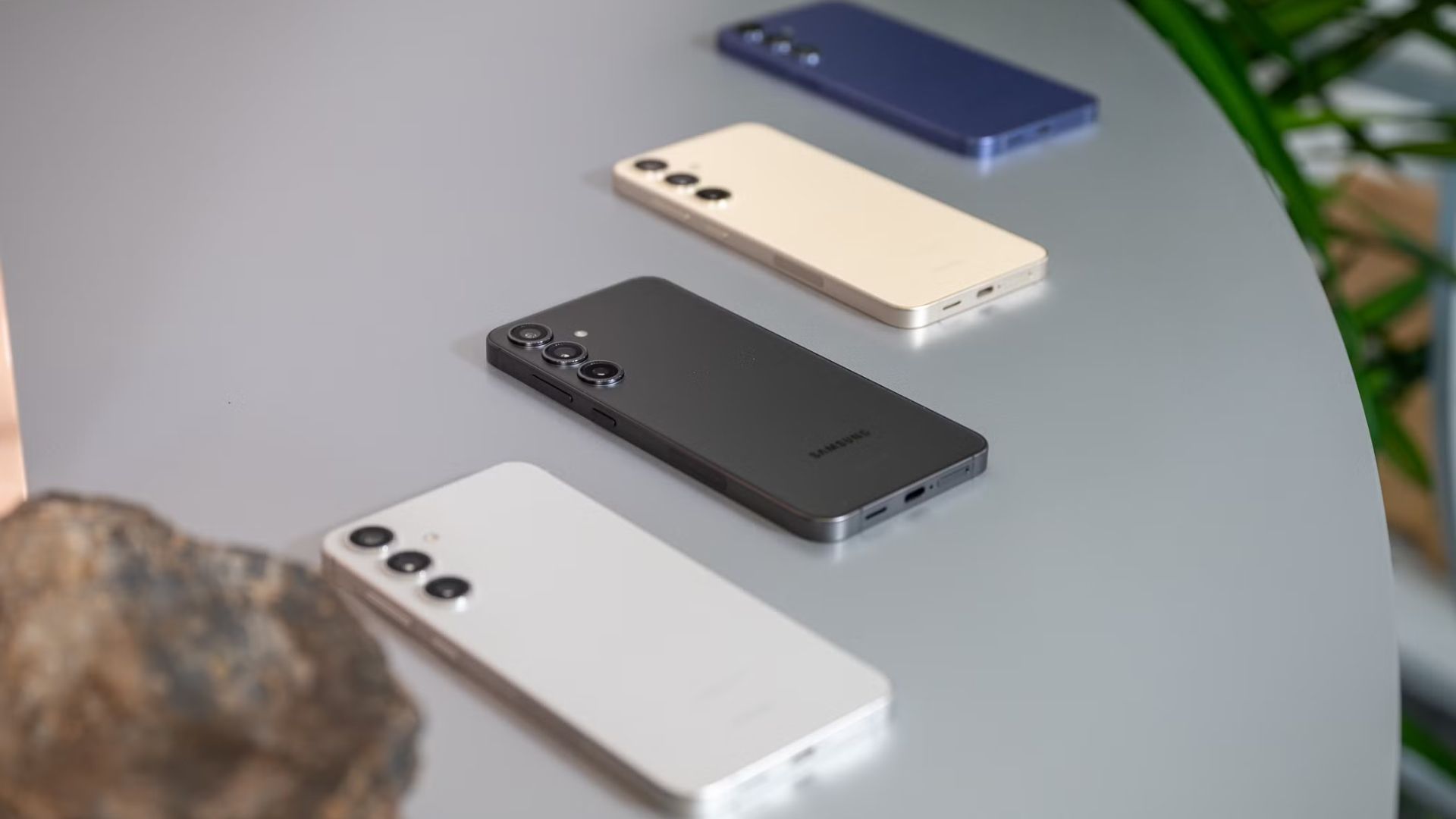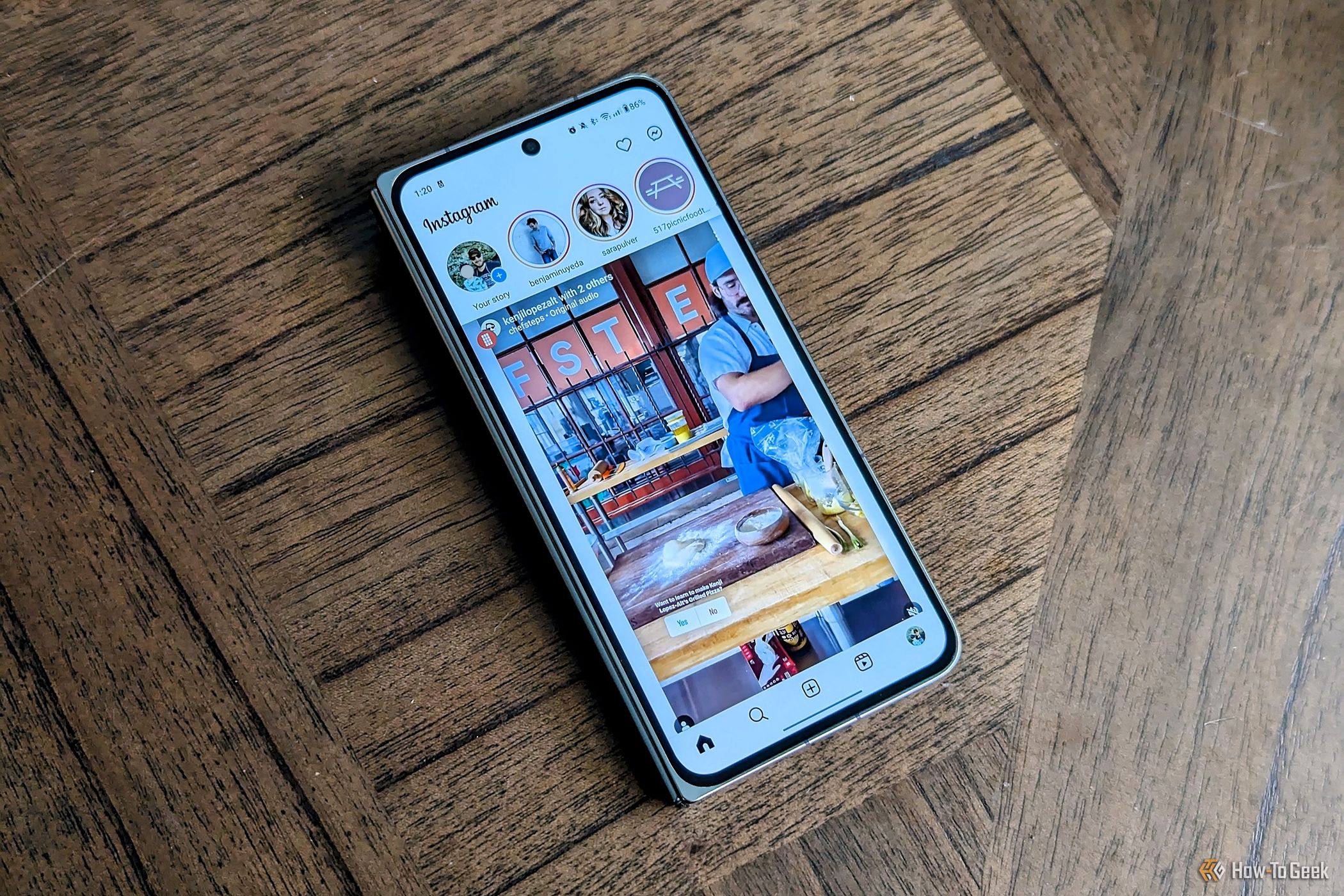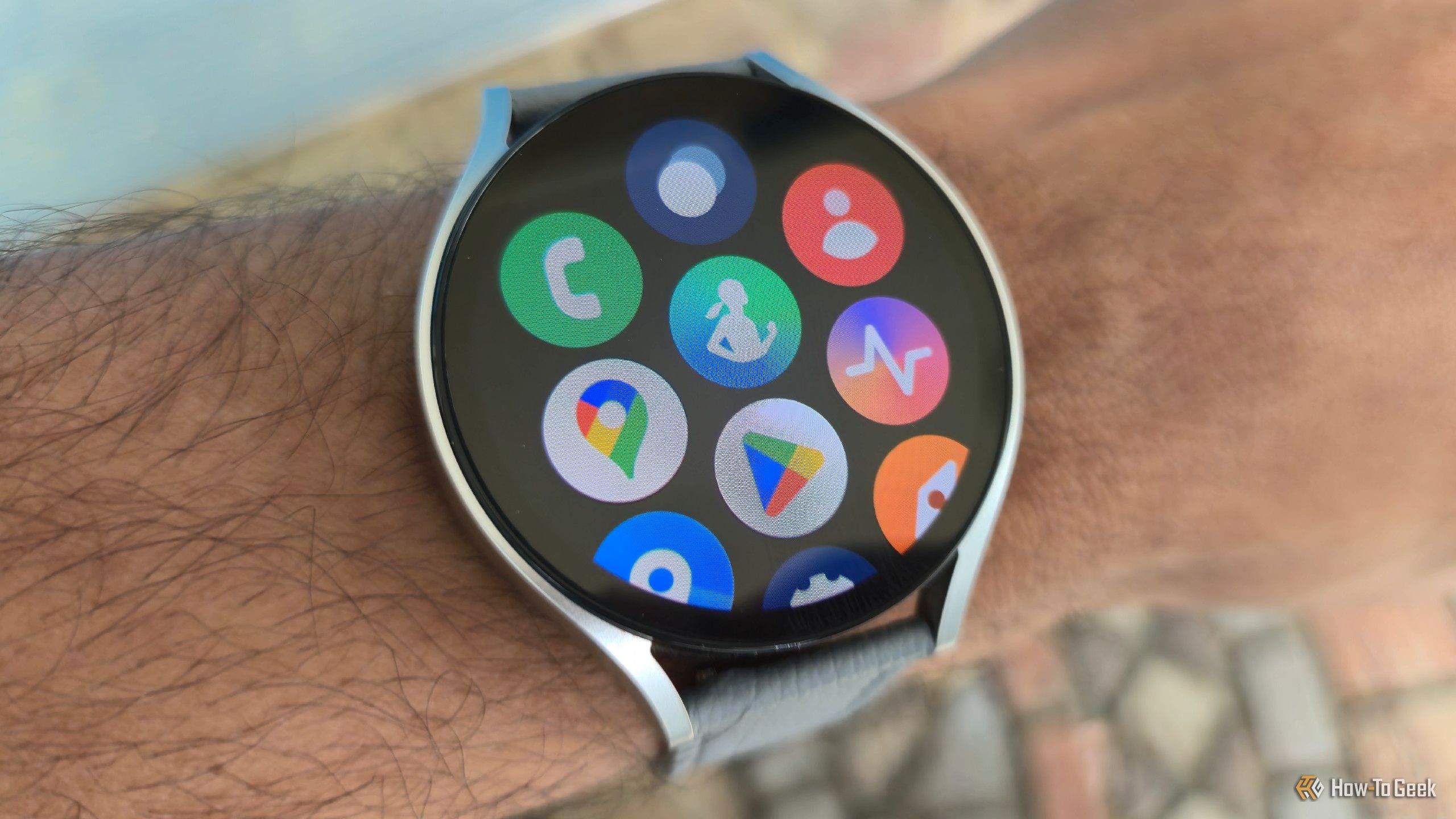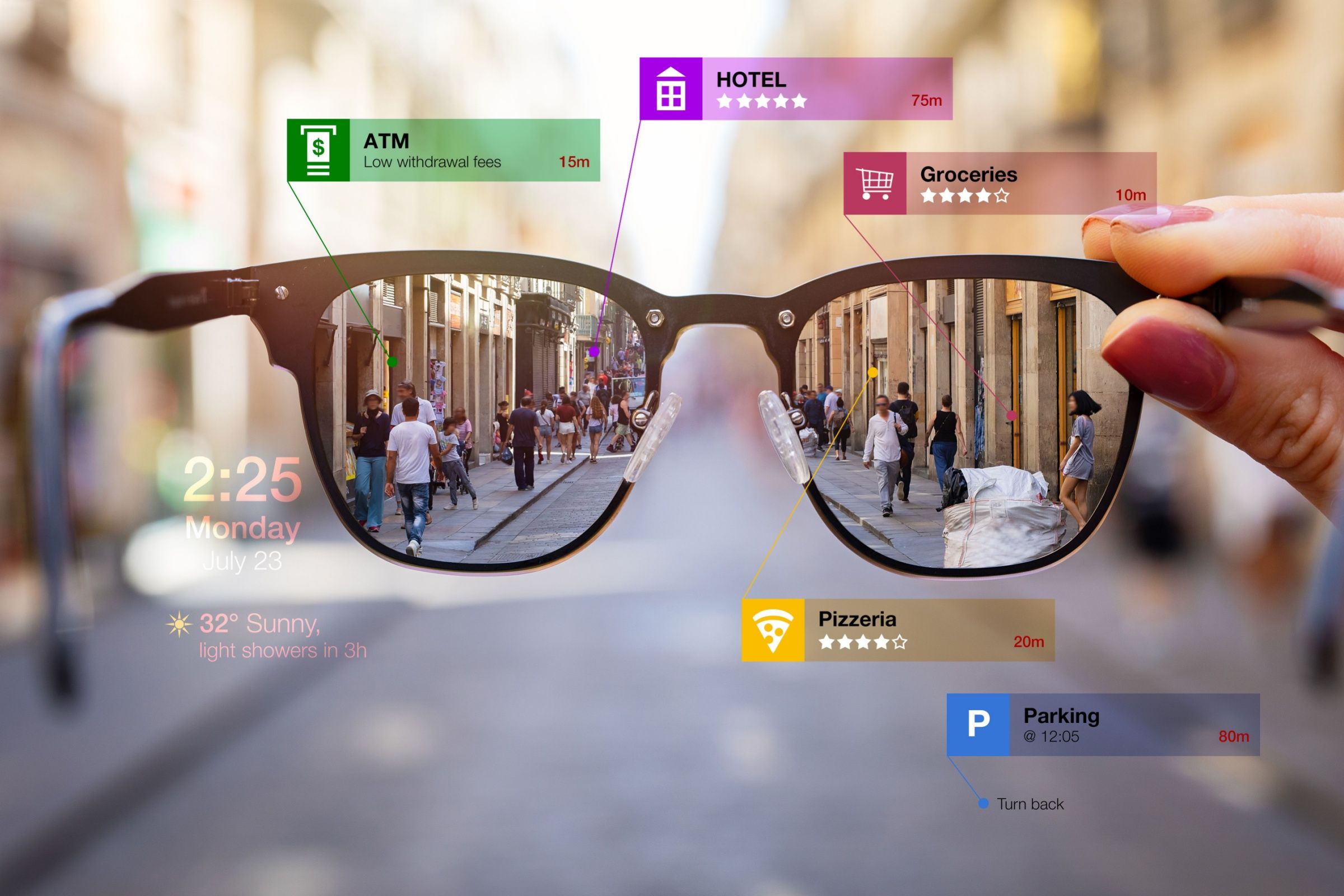Listen to tech CEOs talk about the future, and it’s not uncommon to hear visions of a world where we’re no longer carrying around smartphones. I thought I was looking forward to this future, but what they’re promising is in many ways worse.
Modern smartphones get a lot of flak for being boring. They’re mature pieces of technology, no longer undergoing the rapid experimentation and change they underwent in their early years. But this complaint glosses over something fundamentally impressive about phones.

Related
Smartphones Are Boring Now and It’s Our Fault
We’ve come a long way, but how far can we go from here?
In the span of less than two decades, we’ve minimized computers from the size of laptops to tiny slabs less than half a centimeter thick. These devices don’t require a keyboard or mouse. Their cameras are good enough even for professional work. They’re not impenetrable, but they survive most drops just fine, and they can survive being immersed in water. These devices may now be everyday and mundane, but it’s incredible the technology we’ve built.
Some even manage to still surprise us. I’m writing these words on a phone that unfolds into a tablet and becomes a desktop when connected to an external display. It’s a full-blown pocket PC.
But What About the Apps?
It isn’t the physical device itself that has earned smartphones a bad name. It’s not even the reality of seeing people look at them all the time. Rather, it’s how we use them and what we’re looking at when we do.
Smartphone usage has almost become synonymous with social media usage. We’re looking at feeds that primarily sites is stuff we aren’t interested in, incentivizes conflict, and encourages a degree of narcissism. We use these cameras sometimes to document the world but often to take pictures of ourselves and project a curated view of our lives onto others. The mobile games most of us play are packed with so many microtransactions and gambling mechanics that it’s hard to still view them as art.
It all makes mindlessly browsing the web feel like a more nourishing and rewarding task, even though that isn’t actually a substitute for reading books or picking up a magazine either. We have created a technology capable of so much, but many of our most capable engineers and designers are using their efforts to create the next big way to keep us hooked, even if it means we all end up doing something even more trivial than before. And they’re doing so with such little respect for our privacy and autonomy along the way.
What Promises to Replace Them Will Collect Even More Data
When visionaries picture a world without the smartphone, they aren’t picturing a future where we’ve all adopted minimalist phones instead and have returned to prioritizing face-to-face conversation or heading each other’s voices. They picture wearable AI pins or intelligent wrist communicators. They picture smart glasses with integrated AI.
They’re racing to build the BrainPal from John Scalzi’s Old Man’s War novel, a technology which enables people to instantly look up any information known to humanity or message whomever they wish, using only their thoughts.

Related
AR Glasses Have AI Now, But What Does That Mean?
Smart glasses are smarter than ever, but is that good or bad?
Yet while the BrainPal may sound invasive from its premise alone, it has privacy built in. In that fictional world, BrainPal activity was encrypted using the highest standards known to future humanity, and the data was locally stored. Our current creators are trying to usher in this future using cloud services that congregate all of humanity’s knowledge and communications into machines these few corporations control. It would be easier to believe they were working to the benefit of all humankind if they weren’t so obviously consolidating power and trying to get or stay rich.
Smartphones can be so invasive in part because they’re always on us. We keep them in our pockets and handbags as we move through the world. We sleep with them by our sides. We take them into the bathroom. Wearable tech, by design, is even harder to get away from. If we have such a hard time putting down something we have to pick up, what will we do when even the picking up is no longer necessary?
AI Promises Less Truth and Less Human Connection
The transition to smartphones wasn’t initially about social media. They were about portability. They were about doing away with buttons in favor of touchscreens. It was about how much media we could now store on memory cards and keep in our pockets. This was still the era of the iPod, after all.
The technology supposedly driving the next shift is a shift from tapping buttons, even virtual ones, to just speaking with natural language instead. But for now, the power needed to do this isn’t on individual devices. We’re stringing together data centers and burning up unfathomable amounts of energy so that this can all be done over an internet connection to remote devices instead.
The devices we’re supposedly communicating with are on par with the worst kinds of people. They will lie straight to our faces without guilt, acknowledgment, or apology. They will make stuff up. They will steal. And unlike people, there isn’t yet any accountability when they get stuff wrong.
Meta recently launched a social feed sharing other users’ conversations with Meta AI. To paraphrase The Verge, it’s a dystopian nightmare. And yet it’s a future that’s already here. Images from generative AI have flooded Facebook, and AI influencers are spreading across other platforms. There’s already a well-established scene of indie social apps where you only chat with chatbots, like SocialAI. Many of the smaller apps are just experimenting with this to see where it goes, but as TechCrunch has reported, Meta very explicitly wants to be able to endlessly generate content that keeps us hooked, while also having AI generate the ads.
Social media already replaces genuine human connection with an imitation that often leaves us feeling more lonely and with a distorted view of reality. What happens when we remove other humans entirely?
Phones, originally, were about connecting one human voice to another. Smartphones have been about connecting us to apps. What comes next is being built around connecting us to AI, but continuously revealing itself to be more artificial than intelligent.
The future being promised is one of more commerce but less creativity. It’s a world of more information but less truth. There’s more communication, but less of it is between people.
It’s a vision that leaves me looking at my existing phone more fondly. I suspect, dare I say hope, the smartphone will be more difficult to replace than they let on. These portable little PDAs we’ve all learned to hate? They’re actually cool. If we could encourage more apps and art from small creators, while interacting a bit less with algorithms and media giants, we’d probably feel a bit more of what it is we’re actually looking for.







